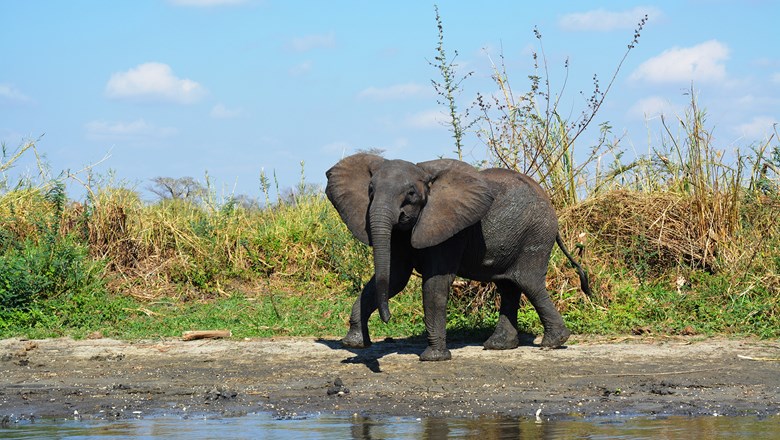Often overlooked and rarely found on travelers’ bucket lists, Malawi has been mainly known as “the warm heart of Africa” thanks to its friendly and welcoming people. However, the country is starting to position itself as an interesting wildlife destination, as well.
Three of the country’s reserves Majete, Liwonde and Nkhotakota are now run by conservation organization African Parks, which has reintroduced wildlife and revived these beautiful parks.
Majete Wildlife Reserve, nestled in the southwestern part of Malawi, is a beautiful story of resurgence and restoration. Just 13 years ago, this reserve was practically an empty forest devoid of most wildlife apart from a few remaining antelope. Rhinos and elephants had been poached, and even the trees were being illegally cut.
In 2003, African Parks entered into a 25-year agreement with the Malawi Department of National Parks and Wildlife to manage Majete and to realize a shared vision of restoring the reserve and to having wildlife flourish once again.
Today, more than 2,500 animals have been reintroduced, including black rhinos, elephants, lions, leopards, sable antelopes, impalas and buffaloes. The restocking of the park has led to Majete becoming a Big Five reserve and Malawi’s premier wildlife destination.
Currently, Robin Pope Safaris’ Mkulumadzi is the only upmarket accommodation in Majete Wildlife Reserve. The lodge boasts eight chalets set on the banks of the Shire River, shaded by giant leadwood trees and wild mangos. Travelers can also choose to spend the night on a raised star deck to sleep under the stars.
Also Liwonde National Park has known an incredible revival. Several key species reintroductions have taken place, most recently returning cheetah and subsequently lion to the park after a long period of absence to restore the natural system and encourage growth in wildlife tourism. One of history’s largest elephant translocations was successfully completed in August 2017, when more than 500 elephants were moved from Liwonde and Majete Wildlife Reserve to repopulate Nkhotakota Wildlife Reserve and to reduce conflict and habitat pressure in Liwonde.
The area today comprises riverine, grassland and Mopane Woodlands, which offers amazing scenery and is home to elephants, buffaloes, endangered black rhinos and various antelope species. The park is a birder’s paradise with nearly 300 species, including the Bohm’s Bee-eater, Livingstone’s Flycatcher, Pel’s fishing owl and Lillian’s love bird.
The good news is that more is yet to come. The Government of Malawi and African Parks announced in March the signing of the agreement to expand its management of Liwonde National Park to include Mangochi Forest Reserve, an adjoining forest and water catchment area. Physically adjoining Liwonde, Mangochi Forest Reserve is historically an important dispersal area for elephants and other species. Currently the reserve is home to a small population of elephants, a breeding population of leopards and uniquely occurring bird and butterfly species and, given adequate protection, is a crucial ecological extension of Liwonde.
A new Robin Pope Safaris camp, Kuthengo Camp, is set to open in April and will feature four spacious and modern safari tents. This small camp with a maximum capacity of 10 guests promises a personalized safari experience. New lodge concessions are also being finalized across the African Parks’ management areas for the development of more lodges in the area.






